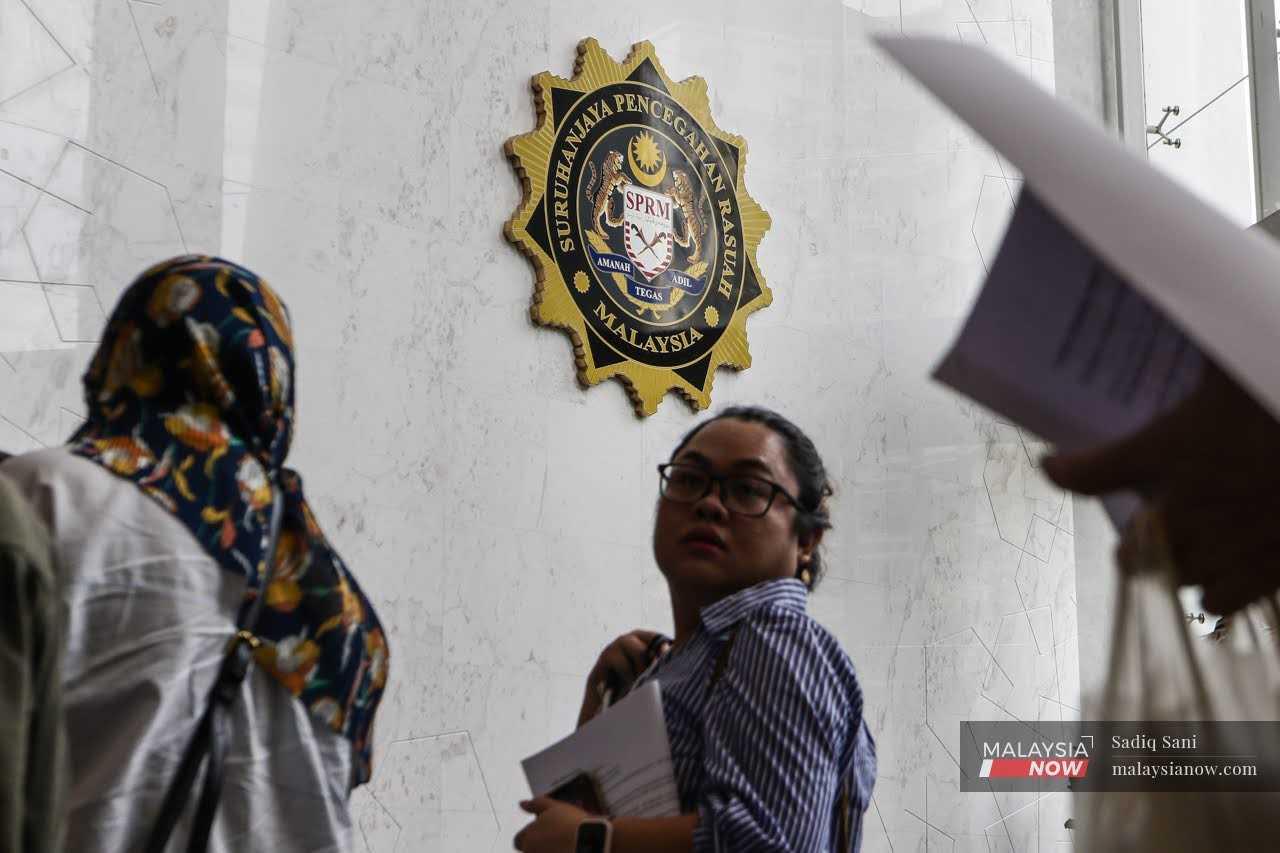Apex court rules MACC probe against judge Nazlan did not follow protocol
A seven-member panel led by Chief Justice Tengku Maimun Tuan Mat also says the investigation was done without consultation with the judiciary.
Just In
The Federal Court today ruled that the investigation by the Malaysian Anti-Corruption Commission (MACC) against Court of Appeal judge Mohd Nazlan Ghazali was done without regard for judicial independence and protocols.
A seven-member panel led by Chief Justice Tengku Maimun Tuan Mat said the manner in which the investigation was conducted, including its publicisation through a press statement, did not appear to preserve confidence in the judiciary's independence.
She also said that the timing of the investigation against Nazlan, which was done without consultation with the judiciary, had cast doubt on whether the probe was bona fide or done in good faith.
"Though the MACC's press statement did not refer to Nazlan by name, contemporaneous media reports which mentioned Nazlan and the earlier spurious blog post all did refer to him, which was sufficient to enable any reasonable citizen who read the press statement to deduce or believe that Nazlan was suspected of having committed a crime.
"That fact in itself could tarnish the image of an independent judiciary," she said.
Tengku Maimun also said at the time that the press statement was issued, there was significant buzz in the media that former prime minister Najib Razak's final appeal in the SRC International case was coming up for hearing before the Federal Court.
The top judge said Najib had even relied on an argument of supposed bias by Nazlan and his former employment with Maybank as grounds to nullify his conviction.
Tengku Maimun sat on the panel with Court of Appeal president Amar Abang Iskandar Abang Hashim, Chief Judge of Malaya Mohamad Zabidin Mohd Diah and Federal Court judges Nallini Pathmanathan, Vernon Ong Lam Kiat, Harmindar Singh Dhaliwal and Rhodzariah Bujang.
She was delivering their decision online pertaining to two questions of law raised by lawyers Haris Fathillah Mohamed Ibrahim, Nur Ain Mustapa and Sreekant Pillai.
The questions were related to the powers of criminal invetigation bodies to investigate serving superior judges as well as the public prosecutor's power to institute proceedings against serving superior judges.
The lawyers filed a lawsuit on May 6 last year against MACC chief commissioner Azam Baki, MACC and the federal government after MACC opened an investigation paper against Nazlan following a report on an allegedly unexplained sum of more than RM1 million in Nazlan’s bank account.
The lawyers argued that criminal investigation bodies and the prosecution could only commence investigation against a serving judge after the judge was suspended by the Yang di-Pertuan Agong or removed by a tribunal.
Nazlan subsequently lodged a police report against an online portal which alleged that he was being investigated over unexplained wealth in his account.
He was the High Court trial judge who convicted and sentenced Najib to 12 years in jail and a RM210 million fine on seven charges relating to RM42 million in funds belonging to SRC International on July 28, 2020.
In the apex court's decision, Tengku Maimun also said that a set of protocols must be followed when a judge is investigated, including seeking leave from the chief justice before conducting the probe.
She said this was because the chief justice might know details that the criminal investigation body does not, and would also safeguard judicial independence.
She said criminal investigation bodies cannot of their own accord publicise or advertise the facts of an investigation or the contents of the investigation on a superior court judge without the approval of the chief justice, and the contents of the probe must remain confidential at all times.
She said judges were considered to be citizens of the highest moral character, adding that an "announcement of an investigation against a judge is enough to damage the image of the institution he serves".
The three lawyers were represented by counsel Malik Imtiaz and A Surendra Ananth while senior federal counsel Liew Horng Bin appeared for Azam, MACC and the federal government. Lawyer New Sin Yew appeared as amicus curiae for the Malaysian Bar.
Subscribe to our newsletter
To be updated with all the latest news and analyses daily.
